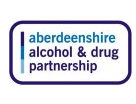Alcohol
What is it?
Alcohol is a sedative hypnotic depressant drug – it depresses the central nervous system making you feel more relaxed and sociable. As with all depressant drugs it slows down your heart rate and breathing. It comes in various forms, mainly beer, spirits and wine.
Short-term effects
The effects depend on how much is consumed; individual factors such as body weight, gender, the strength of the alcohol, mood, physical and mental health, how you take it, where you take it and whether or not it is mixed with other drugs also have an impact.
Alcohol lowers inhibitions and impairs judgement. This can make you vulnerable. It also leads to loss of coordination, making you more accident prone. Your speech will become slurred and, in excessive amounts, it can also lead to unconsciousness, coma and death.
It is never advisable to mix alcohol with other drugs as the results can be unpredictable.
Long-term effects.
The liver can become damaged due to regular alcohol use; this condition is called cirrhosis, which can result in liver failure and/or cancer.
The brain can also be damaged; cognitive abilities can become impaired and it can increase the risk of depression, anxiety and dementia.
Regular and excessive alcohol use can also lead to dependency.
Drinking alcohol when you are pregnant is harmful to your unborn baby.
The Government's lower risk guidelines are
- 2-3 units of alcohol a day for women
- 3-4 units of alcohol a day for men
1 unit of alcohol is equivalent to half a pint of ordinary strength beer, a small glass of wine or a single pub measure of spirits.
It is also recommended that you have at least two alcohol free days a week if you are a regular drinker.
Harm reduction
It is not advisable to mix alcohol with any other drugs. Mixing alcohol with other depressant drugs such as methadone, heroin or valium can result in an overdose.
Pace yourself – alternate between alcoholic and non-alcoholic drinks.
Eat before you go out – this helps to slow down the rate that alcohol enters your bloodstream.
Drink less potent drinks.
Legal – https://www.gov.uk/alcohol-you...
Driving while under the influence of alcohol is against the law. You can still be unfit to drive if you have consumed alcohol the day before, especially if you’ve been drinking heavily. This can lead to a heavy fine, disqualification from driving and even a prison sentence in some cases.
If you are using alcohol (or any other substances), are worried about someone else’s use or would just like to know more, please contact us for more information








